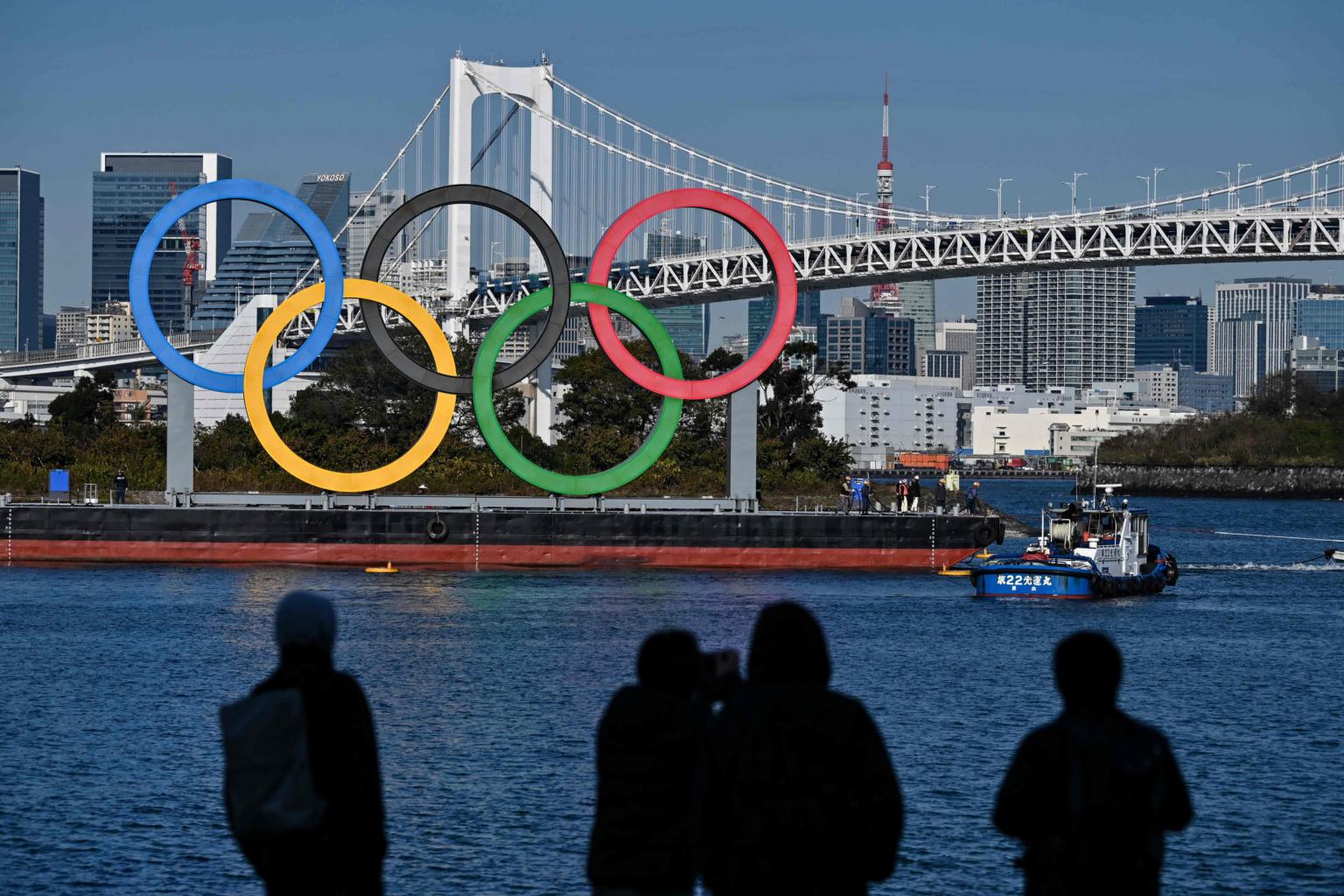North Korea skips Tokyo Olympics over Covid-19, dashing hopes of rapprochement
Sign up now: Get insights on Asia's fast-moving developments

The decision was made at a meeting of North Korea's Olympic committee on March 25, 2021.
PHOTO: AFP
Follow topic:
TOKYO - North Korea will skip the Tokyo Olympics this year to protect its athletes from Covid-19, the isolated nation said on Tuesday (April 6), crushing hopes that the Games could inspire political breakthroughs that can ease regional tensions.
For South Korean President Moon Jae-in, the Games was a chance to rekindle diplomacy with North Korea, which has shunned official contact after talks collapsed between its leader Kim Jong Un and then United States President Donald Trump in 2019.
Japanese Prime Minister Yoshihide Suga also wanted to break the ice with North Korea - through direct talks with officials attending the Games - in a bid to make progress on the return of Japanese nationals who were abducted by Pyongyang decades ago.
North Korea, in a statement on a government-run sports website, said that at a meeting on March 25, its National Olympic Committee had "discussed and decided not to participate in the 32nd Olympic Games to protect athletes from the global health crisis caused by the vicious virus pandemic".
The North, which officially maintains it has no Covid-19 cases, is the first country to pull out of the once-delayed Games, which are slated to be held from July 23 to Aug 8.
The announcement blindsided Japan. Tokyo 2020 chief Seiko Hashimoto said she only learnt of the decision from media reports.
The withdrawal means there will be no repeat of the breakthroughs in the 2018 Winter Olympics in Pyeongchang in South Korea. Mr Kim's sister Kim Yo Jong became the first member of the ruling family to cross the border, in a visit that catalysed a brief diplomatic conciliation, leading to the historic Singapore summit between Mr Trump and Mr Kim later that year.
South Korea's Unification Ministry on Tuesday expressed regret, saying in a statement: "Our government has hoped the Tokyo Olympics could be a chance to promote inter-Korean reconciliation and cooperation as well as peace on the Korean Peninsula."
North Korea's announcement came amid ratcheting regional tensions.
Pyongyang, which last year blew up the joint liaison office on its side of the border, fired two ballistic missiles on March 25. It described the first such test in nearly a year as its "right to self-defence".
This prompted rebukes from the US, South Korea and Japan, which agreed in high-security talks last week to keep up pressure on North Korea "through concerted trilateral cooperation".
On Tuesday, Japan extended by two years its own unilateral sanctions on the country, including a total ban on trade, that were set to expire on April 13.
Japan's top government spokesman Katsunobu Kato said at a news conference that the North's decision to pull out of the Games "does not change our government's stance of working proactively nor Mr Suga's readiness to directly meet and speak to Mr Kim".
Japan's top government spokesman Katsunobu Kato said at a news conference that the North's decision to pull out of the Games "does not change our government's stance of working proactively nor Mr Suga's readiness to directly meet and speak to Mr Kim".
North Korea, which won seven medals at the Rio Olympics in 2016, has twice boycotted the marquee summer sporting event since its first appearance in 1972. It joined a Soviet-led boycott of the Los Angeles event in 1984, and skipped the Games when Seoul played host in 1988.
But before Tuesday, there were few signs that the country would skip the Tokyo Games.
A previous report of the March 25 meeting of North Korea's National Olympic Committee, dated March 26 on the official Korean Central News Agency, made no mention of the Tokyo Games. Instead, it said participants had called for "winning more medals in international games during the period of the new five-year plan to add glory to our dignified nation".
Japan and the International Olympic Committee made the call in March last year to postpone the Tokyo Games after countries like Australia and Canada said they were pulling out.
But the organisers are adamant that the Games will go on as planned this summer, and serve as a beacon of hope and a symbol of victory over the pandemic.
Japan is, however, on the brink of a fourth Covid-19 wave exacerbated by more contagious mutant variants of the coronavirus. Osaka logged a new one-day high of 719 cases on Tuesday while in Tokyo, 399 cases on Tuesday meant the seven-day average has risen by 10 per cent from last week.
Public support for the Games remains low, even as the Olympic torch relay has begun its 121-day journey across the country.
In a bid to ease public apprehension, unprecedented measures are being taken to bar foreign spectators, while countries are also asked to scale down the size of their official delegations.
Still, health experts are warning that the Games might potentially be a super-spreader event. Thousands of athletes and officials - many unlikely to be inoculated - are due to arrive in Tokyo in coming months, while vaccination of the Japanese public proceeds at a snail's pace.
Ms Hashimoto and Mr Kato told the separate news conferences that Tokyo will continue to prepare for the Games, including through infection control, to create a safe and secure environment for athletes to compete.

